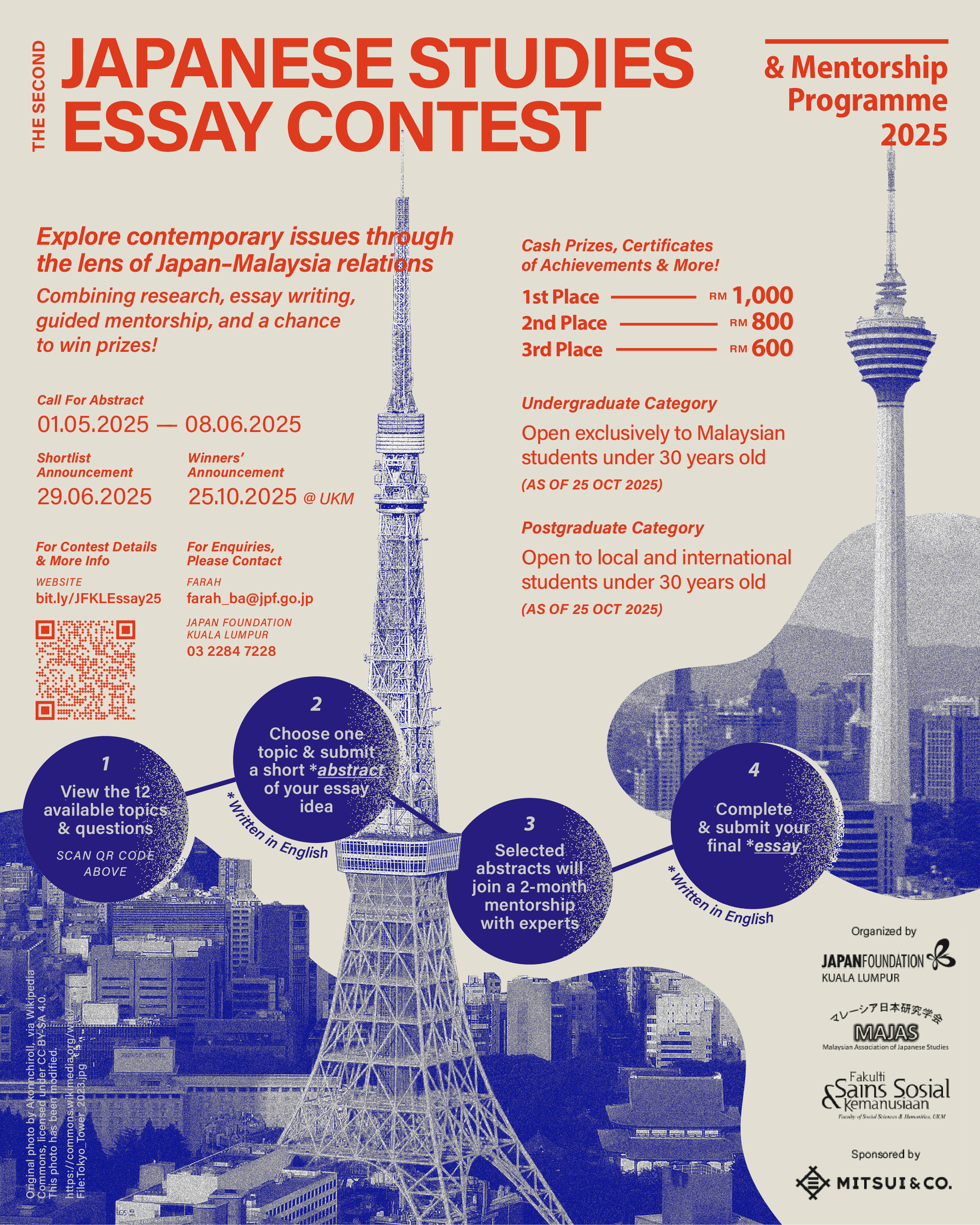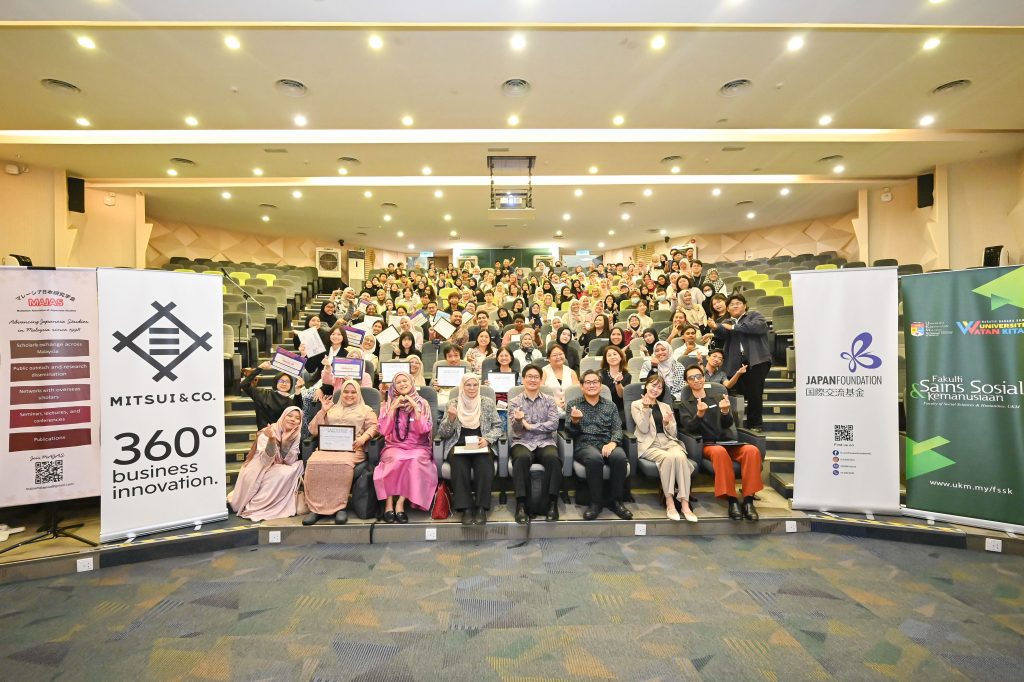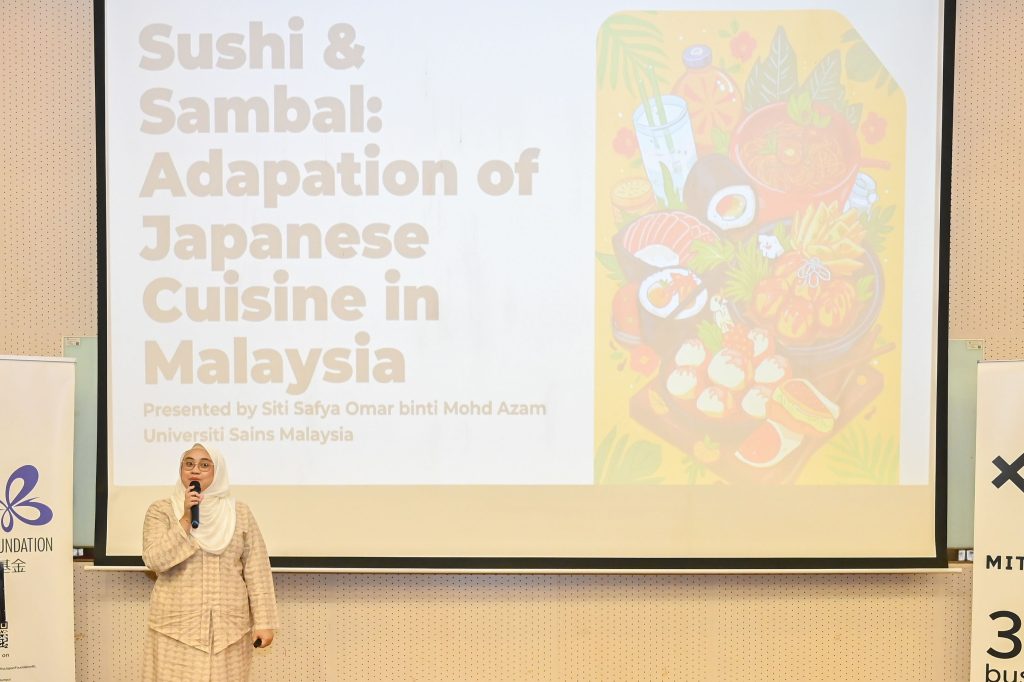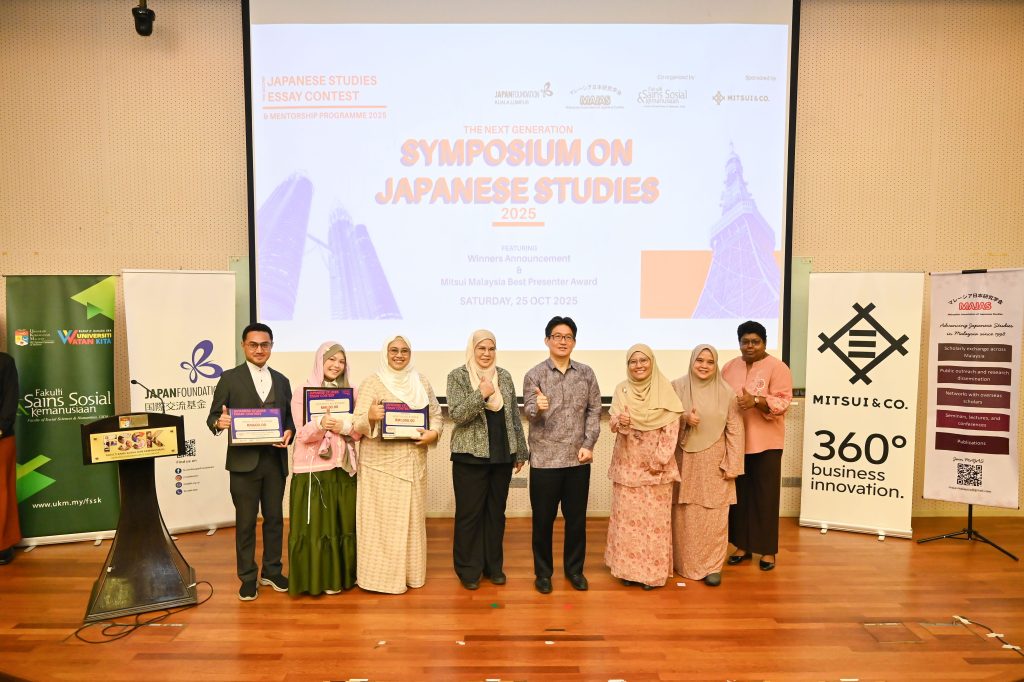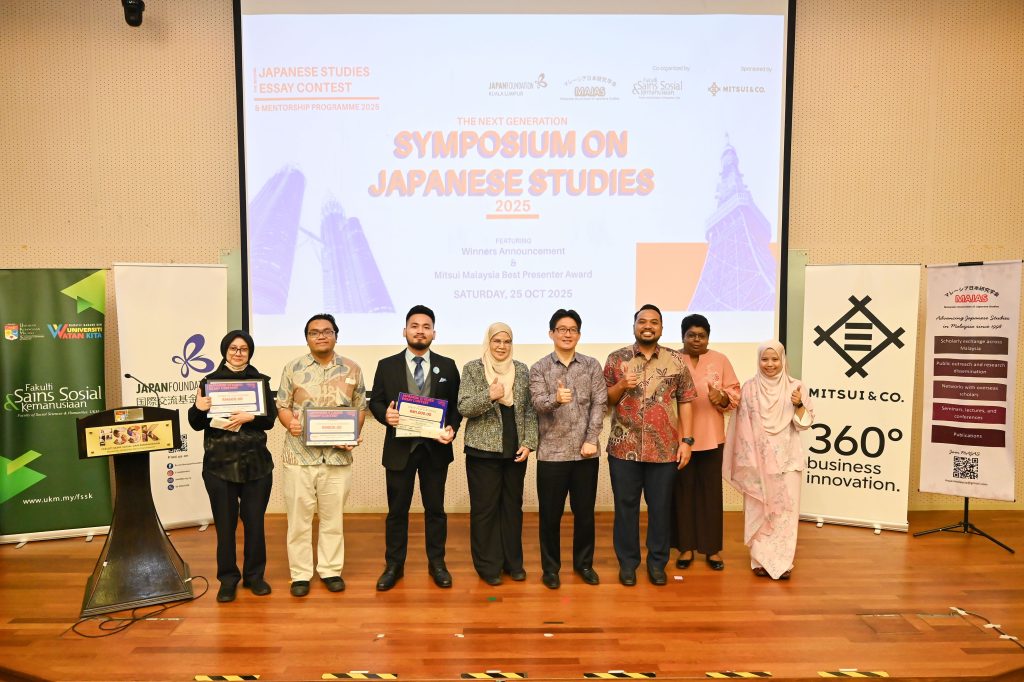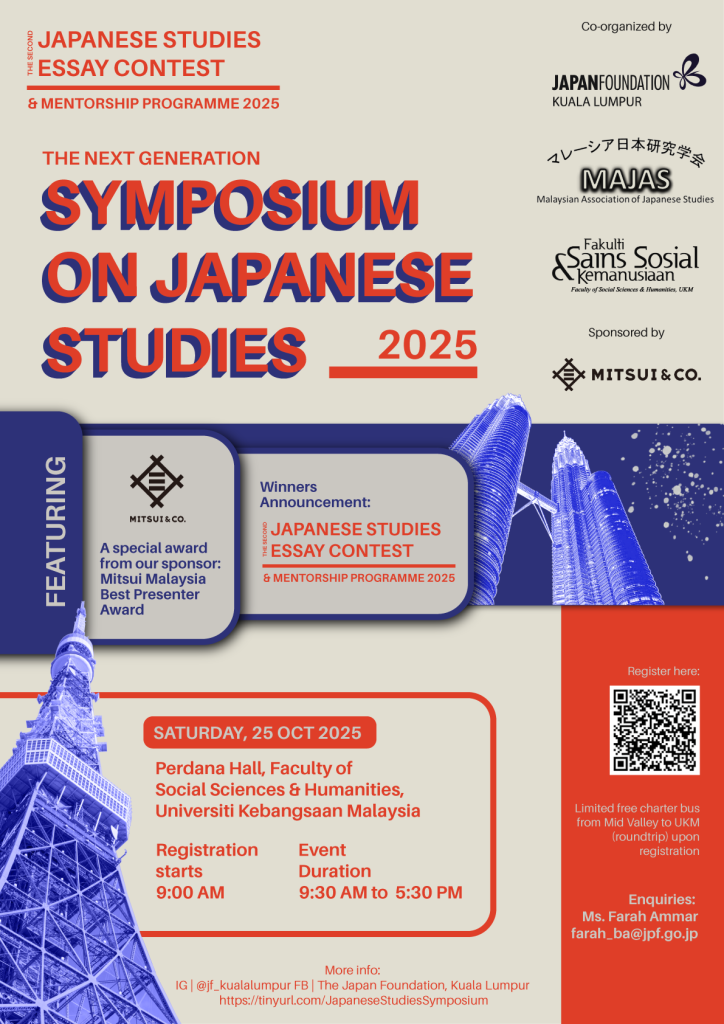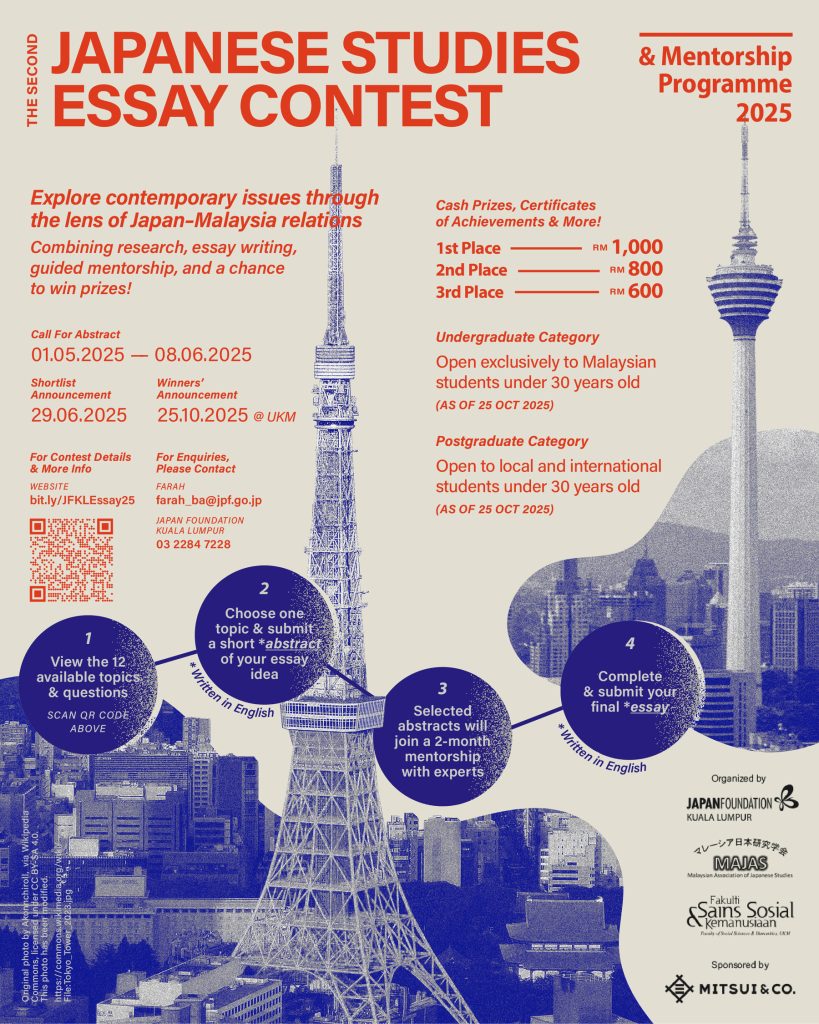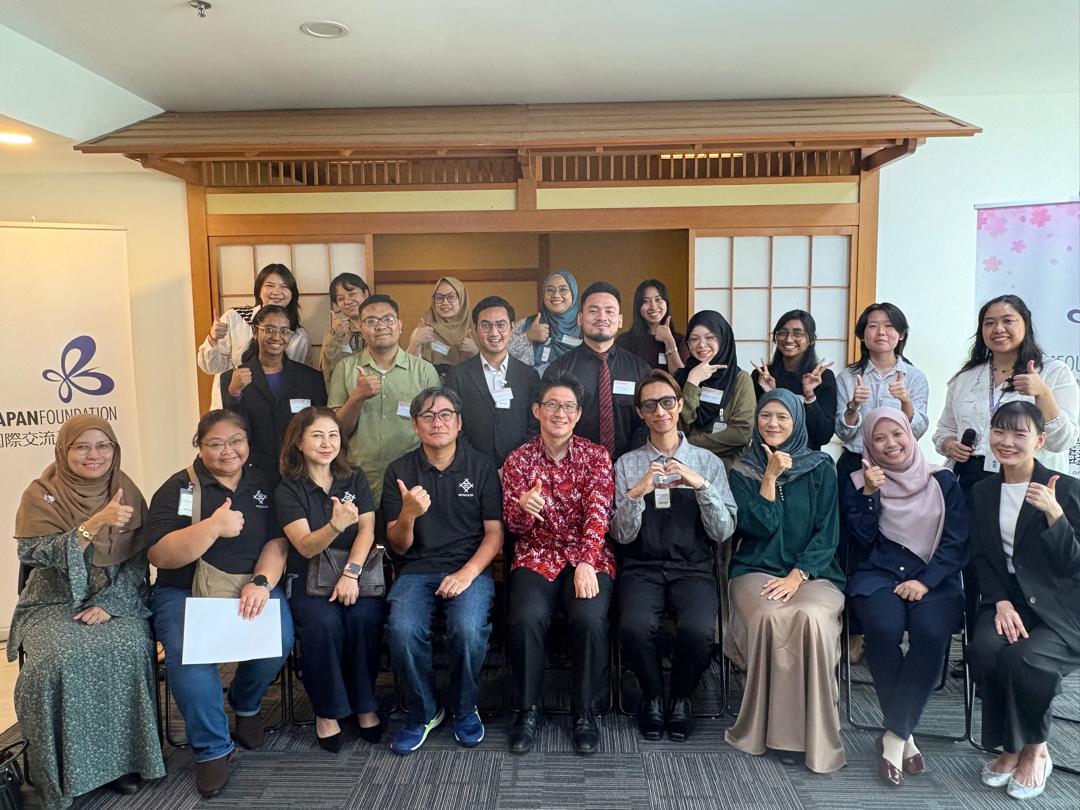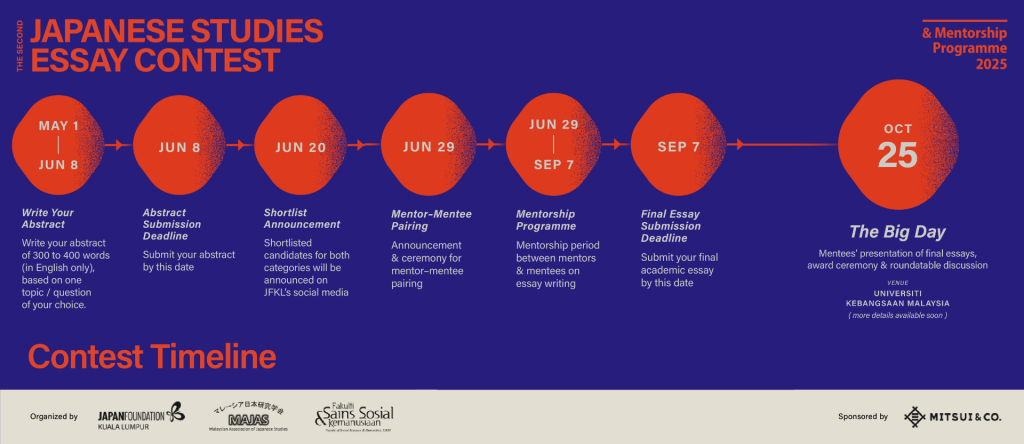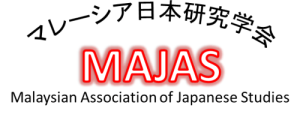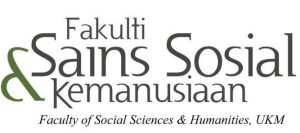25 October, UKM– On a momentous Saturday, over a hundred guests filled the Perdana Hall, Faculty of Social Sciences and Humanities at Universiti Kebangsaan Malaysia to witness the final event of the 2nd Japanese Studies Essay Contest and Mentorship Programme in a symposium titled ‘The Next Generation Symposium on Japanese Studies (2025)’.
The morning segment of the symposium was dedicated solely for the essay contest participants. Prof. Dr. Sity Daud gave the opening speech as the venue host and co-organizer of the contest. Mr. Tsukamoto Norihisa, Director of JFKL was next on stage to express his appreciation to the three co-organizers: JFKL, MAJAS, FSSK, UKM on the 2nd edition of this contest. Our guest of honour, Mr. NARUKAMA Hiromitsu, Managing Director of Mitsui & Co. Malaysia Sdn. Bhd. and honorable sponsor of the contest graced the event to share an enlightening video of Mitsui’s purpose and services and gave a powerful speech on the organization’s support for Japanese Studies.
Following the opening ceremony, the evaluation for the Mitsui Malaysia Best Presenter Award begins! A separate category from the essay submission itself, this award was evaluated on the day by Mitsui Malaysia’s judging panel to assess the presentation skills of all 13 finalists of the essay contest where only deserving student will win the coveted title. One by one, our finalists took the stage confidently and presented on their essays ranging from natural disasters to rural depopulation while popular topics were on Japan-Malaysia food influence and subculture fashion.


